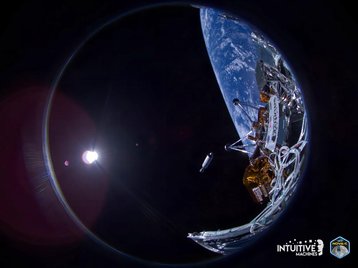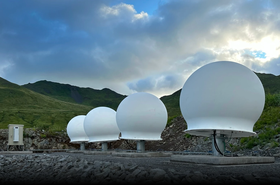Space startup Lonestar Data Holdings has successfully tested transmitting data to a lunar lander en route to the Moon.
The company plans to eventually build data centers on the Moon, but is first trialing a virtual deployment on Intuitive Machines’ Nova-C lander. A follow-up mission, also with Intuitive Machines, will include a small Lunar data center deployment.
Lonestar sent the Declaration of Independence at 13:56 US Eastern, 19 February, to the lander. It plans to send a copy again once the lander is in lunar orbit, and once after it has landed - hopefully on 22 February.
It will then send a copy back from the Moon to Earth.
The company claims the test represents the first-ever digital document transmitted off-planet for disaster recovery storage services.
"This historic achievement is not just a technical milestone, but a testament to human ingenuity and the relentless pursuit of protecting the data that underpins our technological civilization," Lonestar CEO Chris Stott said.
"Our partners at Intuitive Machines have been superb and the timing of our test to be on Presidents’ Day is so very fitting. It is truly a showcase of what free people and American entrepreneurs can do for the world and for all our futures."
Steve Altemus, CEO of Intuitive Machines, added: "As the lunar transportation provider, we are pleased to support these companies on their journey to the Moon."
Should the lunar landing be successful - which would be the first time a private company has achieved a soft touchdown on the Moon (other efforts have missed, or crashed) - Intuitive Machines plans a follow-up mission in the coming months.
That mission, known as IM-2, will include an 8TB SSD and a single Microchip PolaFire SoC FPGA. It will be Lonestar's first lunar data center, and the company will use it to further test the concept and see how storage behaves on the surface.
Further in the future, it hopes to deploy fully fledged data centers - potentially in protected lunar tunnels - as a form of disaster recovery for Earth.







